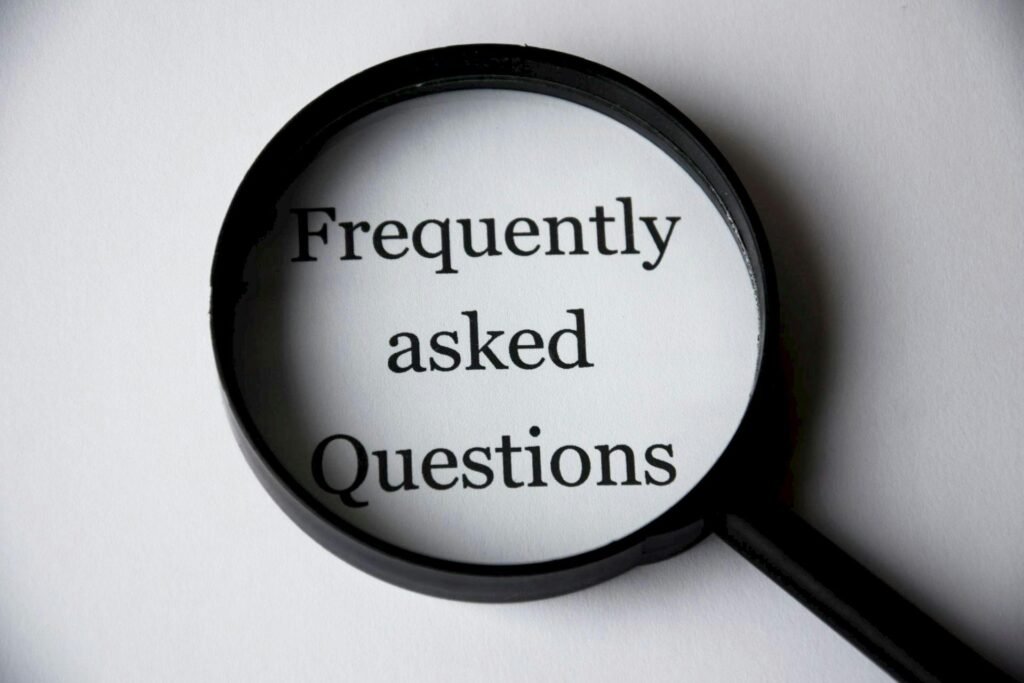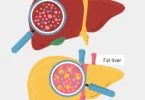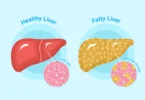Have you ever tried to figure out why you feel tired or worn out constantly, even after a full night’s sleep? Why doesn’t your skin seem to glow even though you continue your usual skin routine? Understanding sluggish liver symptoms means identifying the subtle, yet chronic, indications that the hardest-working organ in your body is not working for you like it should.
Your liver is like the friend who always feels a little sad, and who you call when you’re drunk, or mad and when they’re at a bar, or busy, they don’t have your attention. Your friend is there, present, trying to keep you healthy while you consume all the fun things, but when your friend is overwhelmed, they may raise their hand by tiny hints to you that they need help. Sluggish liver symptoms are your body’s signals for support. Recognizing these symptoms soon is key to your healing process!
Your liver is like your personal cleanup crew, handling everything you put into your body, from the same morning coffee you love to the stress hormones from the frustrating meeting. So when the organ that serves you as a filter experiences sluggishness, the effects can be very far-reaching and affect you physically, emotionally, and in your digestion, in fact, the way you look in the mirror.
What Are Sluggish Liver Symptoms?
1. Consistent Fatigue
That bone-deep tiredness that won’t shift. No matter how much rest you get! This could be one of the most well-known sluggish liver symptoms. When the liver is not functioning at an optimal level, it cannot process toxins, nor can it metabolise nutrients as well; consequently, you feel like you’re running on empty!
Studies have shown that many people with liver dysfunction show signs of chronic tiredness and lethargy. Unlike physical fatigue that disappears with a weekend of rest, this is chronic tiredness that impacts daily life – EVERY DAY – and even the simplest tasks can feel beyond your capacity to manage.
Your liver works hard to transform food into energy; however, when sluggish, that energy production really slows down. You feel as though you are constantly swimming upstream, pushing against the current of chronic tiredness, and that chronic fatigue is tangible, impacting both your emotional and physical well-being.
2. Digestive Problems
Do you choose to avoid a delicious pasta meal, for fear of the bloated, uncomfortable feeling that inevitably will follow? Digestive issues are classic sluggish liver symptoms that many people overlook or attribute to other problems.
The liver produces bile, which is essential for fat digestion and the absorption of nutrients, and it can be more than a coincidence that as the liver function deteriorates, we may notice that we tend to experience bloating after a meal (especially anything containing fat). Indigestion seems to be a common dinner guest, whose presence is uninvited and whose stay also seems never-ending. Even long after we have finished eating, that feeling of fullness is ever-present! Research has found that symptoms such as bloating, a full stomach, and intolerance to fatty foods are typically indications that your liver is not able to process the nutrients you eat and is sometimes unable to regulate your gut health. These symptoms located externally are often “your body’s sign to you” that “I need help”.
3. Skin Changes (Jaundice, Itching, Dull Skin)
It is often said that the skin is a mirror of our overall health, and this is especially true when considering sluggish liver symptoms. When the liver is not able to metabolize toxins properly, these toxins start to accumulate, and the skin becomes one of the symptoms that we have to eliminate waste.
You may see a yellow-looking base to your skin or the whites of your eyes; this sluggish liver symptom is known as jaundice. Perhaps you are having unexplained ITCHING that seems to come from nowhere, or your complexion has gone from glowing to dull and lifeless.
Research supports that jaundice of the skin or the whites of the eyes, unexplained itching, and dull complexion can all be indicative that toxins are accumulating because the liver is sluggish. These changes are serious, and are not cosmetic or vanity effects – these are very important signals from your body.
4. Brain Fog and Mood Changes
That frustrating feeling when you walk into a room and forget what you were going to do, or when you can’t find the right word to continue a conversation or get the project underway – this is also one of sluggish liver symptoms related to cognitive function.
When our liver is not able to detoxify properly, metabolic wastes can build up (and cross the blood/brain barrier) to what many describe as “brain fog”. You may start to have times when you feel irritable for no apparent reason, can’t concentrate like you used to, and notice memory lapses that were not even a problem for you before.
Research indicates that problems with cognitive function, such as trouble concentrating, forgetfulness, or irritability, may stem from poor liver detoxification and resulting metabolic waste accumulation. Your mental clarity is directly affected by the health of your liver.
5. Abdominal Discomfort (Especially Upper Right Side)
The nagging ache just below the right rib cage perhaps cannot be ignored. Abdominal discomfort (especially upper right where your liver is) is one of the more direct sluggish liver symptoms.
This discomfort is described as a dull ache, mild pressure, or sharp pains that come and go. It is typically worse after meals, especially those with a lot of fat, and often causes feelings of bloating, extreme fullness, or discomfort.
Clinical studies show that extending pain or discomfort in the upper right abdominal quadrant represents liver congestion or inflammation, and sometimes presents with other symptoms such as poor appetite or swelling. Your body’s communication is literally leading you back to your liver issues.
How to Help Your Liver Feel Healthier
1- Maintain a Healthy Weight
The weight of your body and your liver are more connected than you may think. Being overweight, especially carrying belly fat, puts more burden on your liver, and weight is a significant driver of fatty liver disease, which aggravates sluggish liver symptoms.
Try to think about a healthy weight as more of a gift to your liver than as a punishment for your body. Whenever you make a good decision like taking the stairs instead of the escalator, or ordering a salad instead of fries, you are treating your liver and benefiting your health.
2- Limit Alcohol Consumption
While the wine you enjoy every night with dinner can feel like a reward for the work you do all day, every tablespoon of alcohol is processed in your liver as a toxin. Heavy use of alcohol is a leading cause of liver inflammation and significantly aggravates sluggish liver symptoms.
If you are experiencing any symptoms of liver dysfunction, you may consider giving your liver a complete break from alcohol. This is important because there are benefits to your overall health from limiting alcohol use: better energy, better sleep and better function.
3- Eat Foods that Support Liver Health
Food is medicine, and food can help your liver. Eat a range of colorful vegetables, fruits that are rich in antioxidants and whole grains packed with fibre. These foods contain nutrients that your liver requires to be able to metabolize properly and rid your body of toxins.
While you are trying to support your liver, you should completely avoid foods that are bad for your liver, inordinate amounts of refined sugars, and saturated fats, inordinate amounts of which create more work for an already tired liver. Remember, each of your meals is an opportunity to nourish your liver.
4- Exercise Regularly
Movement is medicine for your liver as well. Exercise can help decrease liver fat, improve circulation, and support the body’s natural detoxification processes, alleviating sluggish liver symptoms.
You do not have to become an elite athlete overnight; start walking some gentle walks, swim or do whatever other activity you enjoy! Consistency is key; the goal is to aim for at least 150 minutes of moderate activity each week, with each bit of movement being a step in the right direction.
How to Know if Your Liver is Healthy
A healthy liver should be like a well-tuned engine; it runs smoothly, efficiently, and supports all the functions of the body without drawing attention to itself. So, if your liver is healthy, you’ll feel energy levels stay consistent throughout the day, your skin will be clear and radiant, your digestion will run smoothly, and you won’t feel uncomfortable after meals.
You can get objective evidence of your liver health through regular health check-ups, including liver function testing that measures liver enzymes such as ALT and AST. Scientific literature demonstrates that regularly screening and making healthy lifestyle choices can maintain liver function and prevent the onset of more serious conditions.
Ultimately, the absence of sluggish liver symptoms – persistent fatigue, clear skin with no yellowish colouring, comfortable digestion, strong mental acuity and the absence of abdominal pain – is a good indicator that your liver is happy.
The Top Five Frequently Asked Questions

Are sluggish liver symptoms reversible?
Generally, yes! Provided you make active lifestyle choices (healthy diet, regular exercise, and a limited use of damaging substances), sluggish liver symptoms of varying degrees of severity are usually reversible. With the right attention and support, your liver is an awesome organ that boasts phenomenal regenerative abilities.
What foods are good for liver health?
There are many foods, including coffee, green tea, berries, grapefruit, oatmeal, and garlic, that have been shown to support liver health and reduce toxicity buildup. They contain elements that promote the liver’s natural detoxification pathways and help to protect against cellular damage.
When should I see a doctor?
Do not ignore ongoing symptoms. Suppose you are suffering from persistent fatigue, any jaundiced (yellowing) skin or eyes, any ongoing abdominal pain, or unexplained weight loss. In that case, you should see your healthcare provider for proper assessments and tests.
Do supplements help with the symptoms of a sluggish liver?
Some supplements (milk thistle, ginseng, turmeric, and dandelion root) have been shown to possibly help support liver health. However, you should always work with a healthcare provider before taking any supplement, especially if you are on other medications. Five Products That Can Potentially Aid in Supporting Your Liver Health
Five Recommended Products for Liver Health
Below is a list of five carefully selected products that can support your liver health.
- Milk Thistle Supplement: A traditional and well-used herb that has long been known for liver detoxification and repair due to neo-silymarin compounds that may offer liver cell protection.
- Dandelion Root Herbal Tea: A gentle and natural way of aiding digestion and bile production is great to have daily.
- Curcumin (Turmeric) Capsules: Inflammatory reductions are mostly tied to curcumin properties. This compound may assist in liver inflammation, aiding overall liver function.
- Green Tea Extract: Green tea and green tea extract are known for high anti-oxidant contents. Studies have displayed how green tea may offer the liver protection against oxidative damage which in turn assists with healthy function.
- Liver Support Multivitamin: This contains vitamins A, C, D, and E vitamins with specific minerals combined to help support overall function and liver health.
Take Action for Your Liver Health Now

Your liver has played an important role every single day of your life, and now it is time for you to do something about it. Slow-moving liver symptoms kind of sneak up on you, but recognising the changes in your body is the first step to optimising your energy, digestion, and life.
You don’t have to wait until the symptoms are worse to make changes. Start small, make small sustainable changes swap that processed snack for some berries, take a walk after dinner, or use dandelion tea instead of a coffee (for the 2nd or 3rd time). Your liver will begin to respond to the changes with your self-care immediately.
You might also want to consider a routine check-up with your healthcare provider, regarding your concerning symptoms as well as establishing a baseline liver function test. Information is knowledge, and knowing about the baseline of your liver health can assist you in making better decisions and pre-ordering your wellness.
Remember, the goal is not just to eliminate and generally resist sluggish liver symptoms, but to regain energy, joy, and vitality in life. You deserve it, and your liver wants that for you too.
Also, share this with your friends and family who may be experiencing similar symptoms. The only way we can increase awareness of liver health is to support one another through the journey of health and awareness. Share on your favorite platform, and help people to recognize the urgency of the liver health awareness.
Have you had these sluggish liver symptoms? What changes have you made to help improve liver function? Please share your story in the comments and help inspire others on their wellness journey.
Join our community here for weekly science-backed health tips, free meal plans, and carefully curated product recommendations delivered straight to your inbox!
Disclaimer:
This blog post is for informational purposes only and is not intended as medical advice. Always consult with a qualified healthcare professional before making any changes to your diet, exercise routine, or healthcare plan. The information provided is based on personal research and experience and may not apply to everyone







